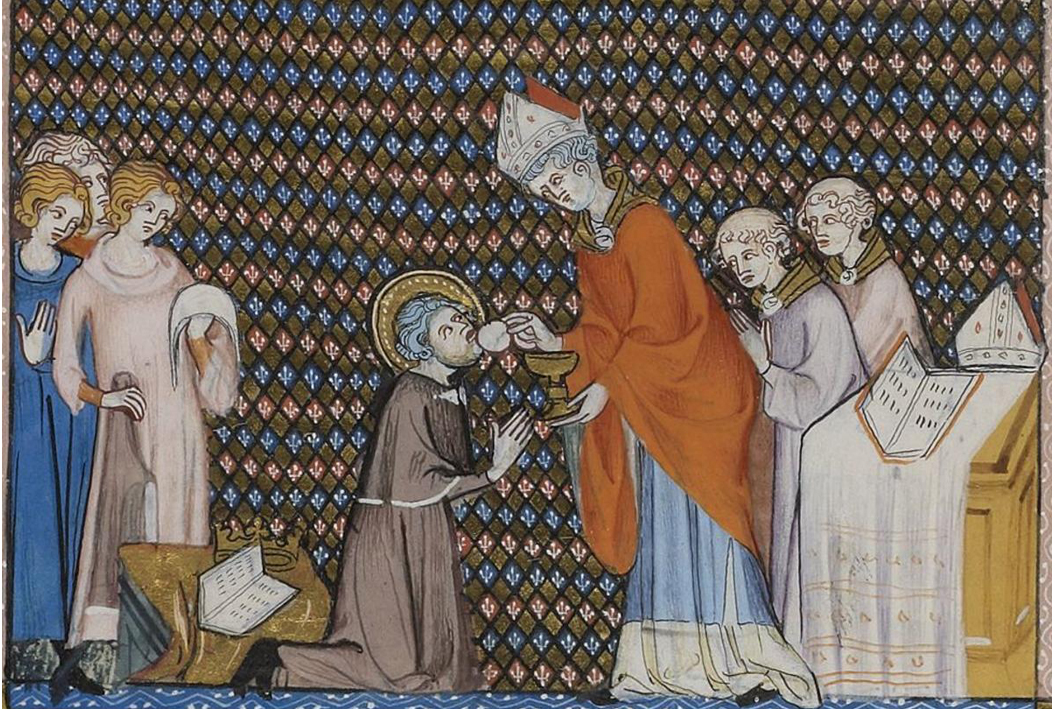The research took more than ten years before Le Goff could finish his magnum opus, a biography of Saint Louis (1214 – 1270). Today it is a classic
Saint Louis
By Jacques Le Goff (transl. by Gareth E. Gollrad)
Notre Dame University Press 2009 (French ed. 1996)
ISBN: 978-0-268-03381-1
The research took more than ten years before Le Goff could finish his magnum opus about Saint Louis (1214 – 1270). Today it is a classic
 Under the leadership of Fernand Braudel and together with Georges Duby, Emmanuel Le Roy Ladurie and Philippe Aries, Jacques le Goff worked his whole life to expand the inheritance of Marc Bloch and the Annales School in general. Part of this inheritance consisted of an emphatic resistance against the traditional history of politics as formed by heroes of a bygone time. Social, economical and cultural history were the mainstay of this tradition until the 80es, when the fashion for historical anthropology hit international academia. To say the least, biographies were for a long time considered anathema.
Under the leadership of Fernand Braudel and together with Georges Duby, Emmanuel Le Roy Ladurie and Philippe Aries, Jacques le Goff worked his whole life to expand the inheritance of Marc Bloch and the Annales School in general. Part of this inheritance consisted of an emphatic resistance against the traditional history of politics as formed by heroes of a bygone time. Social, economical and cultural history were the mainstay of this tradition until the 80es, when the fashion for historical anthropology hit international academia. To say the least, biographies were for a long time considered anathema.
Nevertheless Jacques le Goff became fascinated by this idea – probably inspired by the work of Ladurie on Montaillou – that it might somehow be possible to get closer to at least some historical individuals of the past. Apart form some minor biographies we possess two: one on Saint Francis of Assisi and another one on Saint Louis (both from the 13th century). It is the last, which will continue to stand.
It is a remarkable book. It opens up with a traditional narrative of the life of Louis. However, we soon learn that the work is not a traditional biography per se. Le Goff obviously organises even this part – the introductory narrative – as a thematic exercise as seen for instance in such chapters as “The King and the Towns” or “The Flemish Inheritance”. None of this is a series of traditional historical stepping-stones whereby we can put one thing on top of another. This is – in spite of the obvious lack of a complete scholarly edition of the registers, charters and documents– a fascinating introduction to French history of the 13th century.
However, from the second part the plot thickens: Le Goff raises the question whether Saint Louis existed at all? Or rather, were their different images of the saintly king, which were passed around during his lifetime as well as afterwards? Who was this man in the eyes of the mendicant hagiographers, the mirrors of princes or the foreign chroniclers? And not least, who was the man in the eyes of his long-time seneschal and friend, Joinville? Did these portraits differ? Or were they nothing but shifting mirrors covering up a faint shadow?
In the end this question is answered by a historian, who keeps digging from ”the outside to the inside”: What were the gestures of this king? How did he move around? What did he like to eat? And what did he eat? How did he speak? What forms did his religious devotion take? In short: what did his daily life look like? And finally: how would we, Le Goff and his readers, have experienced this man, might we but meet him in the streets or sit in his garden and enjoy a hearty laugh? At the end of the book, Le Goff is insistent: yes, we might in fact get to know him somewhat and not just only on the surface.
This is a masterly wrought biography written with the explicit desire to “meet the man”. Thus In the end Le Goff also confesses that he wished he might dream of the man as Joinville did, when he around 1300 discovered that he was not to have even a tiny relic of a bone to kiss in remembrance of the man he had served so diligently most of his life. A fact, which Joinville compensated for by dreaming that his king came and stayed with him at his small castle:
“Now I must tell you some things about Saint Louis, which will be to his honour, and which I saw in my sleep. It seemed to me then, in my dream, that I saw him in front of my chapel at Joinville, and he was, I thought wonderfully gay and light of heart; and I, too, was happy to see him in my castle, and I said to him: Sir, when you leave, I will entertain you in a house I have in a village of mine called Chevillon. He answered me with a laugh: My lord of Joinville, by the faith I owe you, I have no wish to leave this place soon”.
The biography by Le Goff has been characterised of being too prone to conflate the hagiographical myths on one hand with on the other hand the shadowy outline of what seems to have been the identity of “Saint Louis” as he understood it himself. This may be. Perhaps some corrections may even be appropriate as archival digging lets us get nearer to the more detailed acts and deeds of his work as king.
In the end, however, this biography of Saint Louis is not easily pushed aside. It is simply a very good read…
READ MORE:
Saint Louis – a Man with a Hair-Shirt
Saint Louis – Catalogue with an introduction by Jacques Le Goff
